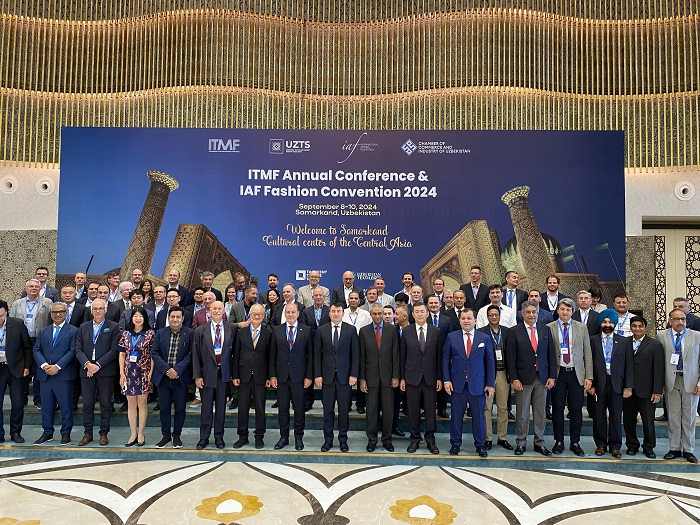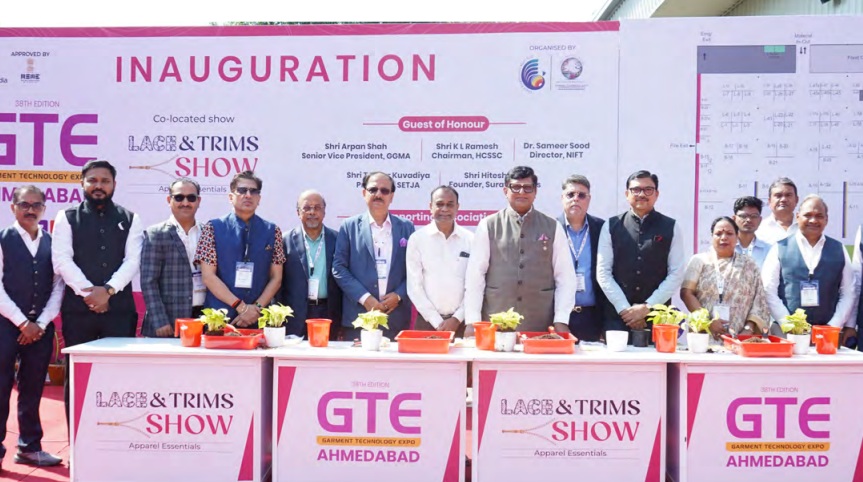
For all these years Central Asian country Uzbekistan was known as a cotton powerhouse. However, now the country is shifting from a focus on raw cotton exports to a vertically integrated manufacturing powerhouse. This evolution was underscored at the recent ITMF Annual Conference and IAF Fashion Convention held in Samarkand, where Uzbekistan's progress and potential were on full display.
Shifting sectoral standing
Indeed Uzbekistan still remains a significant cotton producer, but the focus has shifted towards value addition. The lifting of the cotton boycott in 2022, after Uzbekistan addressed forced labor concerns, has opened doors to major international markets and boosted industry confidence.
The country is investing in modern ginning and spinning facilities to produce high-quality yarns and fabrics, reducing reliance on raw material exports. Yarn production is a key pillar of the sector, with a growing emphasis on finer counts and specialized yarns for the apparel industry. Investments in state-of-the-art spinning mills have enabled Uzbekistan to expand its yarn exports and cater to diverse market demands.
Fabric manufacturing is rapidly expanding, driven by investments in weaving and knitting technologies. Uzbekistan is producing a wider range of fabrics, from basic cotton to technical textiles, contributing to the country's export diversification. Meanwhile the garment industry too is experiencing unprecedented growth, backed by favorable government policies, skilled labor, and access to international markets. Uzbekistan is attracting major global brands and retailers, further boosting its garment exports. Uzbekistan's Prime Minister says "We are creating all the necessary conditions for foreign investors and are ready to welcome new investments into the sector." This highlights the government's proactive approach to attracting foreign capital and expertise.
The just concluded ITMF and IAF events highlighted several key trends
• Export growth: Uzbekistan aims to triple its textile and apparel exports to $6.5 billion by 2026. In the first half of 2024 alone, exports exceeded $1.7 billion, reaching 85 countries.
• Investment: The government's supportive policies are attracting foreign investment. South Korean textile major Youngone Corporation, for instance, operates two factories in Uzbekistan and plans further expansion with a $55 million investment, creating over 5,000 jobs. As Kihak Sung, Chairman of Youngone Corporation says, "We believe in Uzbekistan's potential. The country offers a favorable business environment, skilled workforce, and strong government support."Similarly, Global Textile Group, a vertically integrated Uzbek company, has expanded significantly, becoming a prominent player in the industry. Their growth underscores the potential for domestic companies to thrive in the evolving textile landscape.
• Sustainability: Uzbekistan is embracing sustainable practices. The country is actively promoting organic cotton production and investing in eco-friendly technologies.
Indeed, with right policies in place and investments, Uzbekistan's textile and apparel sector is poised for significant growth, driven by its strong fiber base, expanding manufacturing capabilities, government support, and focus on sustainability. And the recent ITMF & IAF event highlighted the country's ambition and progress. With its strategic location, competitive advantages, and commitment to ethical practices, Uzbekistan is emerging as a key player in the global textile landscape












